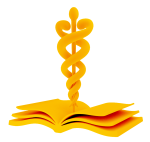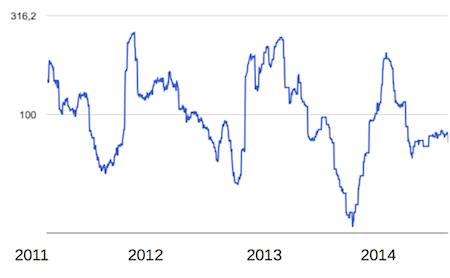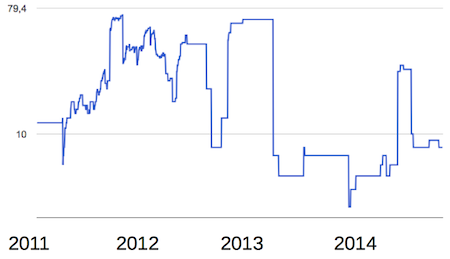



Theme
5II Online learning 2
INSTITUTION
First Faculty of Medicine, Charles University in Prague
There are various medical wikis all around the world. Some of them are successful while others are not. For example, Medpedia, a famous and initially very successful widespread wiki-based medical educational project, deceased.
Our team runs two wiki projects focused on creating and storing medical study materials, which are based on cooperation of students and teachers at medical faculties of Czech Republic and Slovakia. Impact of these two projects differs significantly. While the first of them, WikiSkripta, is in native language of Czech and Slovak students and seems to be the most visited repository of undergraduate medical study materials in these countries, the second project, WikiLectures, is in English and it constantly struggles for survival.
We reviewed some similar projects, compared their basic qualities, content and various metrics of their success.
We explored what the differences are between the successful and unsuccessful projects when the background and maintaining teams are the same. We searched for articles containing term "educational wiki" or "collaborative work" or "collaborative writing applications" and similar ones at PubMed. There were hundreds of articles with these topics, we reviewed them and selected those that were mainly discussing the success of medical wikiprojects.
We also examined some publicly available statistics of our projects (WikiSkripta stats and WikiLectures stats) to show how some of them could be useful in evaluation of such projects.
WikiSkripta (http://www.wikiskripta.eu) have over 9,000 users. It is very popular among students and young doctors and many of them are interested in improving the articles or writing new ones. Users are connected together and they can discuss topics of common interest at many meetings organized by the editor team during the academic year. There are some team-building weekends as well. Here is the graph of active users count (i.e. number of users that made at least 1 edit in the last 30 days) from 2011 to 2014:

WikiLectures (http://www.wikilectures.eu) don't have that many users - only about 2,400. And very few of them are really active (i.e. made at least 1 edit in the last 30 days), as can be seen from the next picture. Although there were some meetings and teambuilding weekends, in our small country we are not able to create the editorial board and team that is big enough to "overcome" the critical mass.

Other medical wikis are widely spread all around the world, like the successful ones and the failed ones. These wikis usually serve for universities, schools or faculties where they've been found. Most of them are closed for external unregistered users. Some are maintained by students while others are written by experts.
The example of the successful medical wiki can be UMMedWiki as seen in the litetarure[7]. This wiki is created by students and their pedagogues and this cooperation seems to be very effective. Unfortunately this wiki is closed and available only for students of University of Minnesota. According to their report, "a self-sustaining wiki might be reproducible: an initial, prolific set of editors transfers content to the wiki; a turn-taking structure may promote editor diversity helping refine the wiki content," and "the student wiki may fill a unique educational niche providing a computable, comprehensive, and focused compendium on the core content of medical education. While it has clear student benefit, faculty might also find use by extracting reliable data for curriculum coordination and quality assurance."
Among the failed medical wikis there is e.g. Medpedia, that used to be a very successful and sought-for wiki. However it had been maintained only by experts, it contained both public and professional articles and it failed probably due to loss of communication and cooperation of the team. This example shows that the elitism kills content and if the project is restricted in such a way that only to experts are allowed to create the content while access for others is limited for reading only, it burns out very quickly. It says that philosophy of the Web 1.0 ("doctors know best") cannot be used on a website using Web 2.0.
Our evaluation of the projects showed that:
- using wiki has a strong positive impact on students' results in tests and exams;
- there must be a critical mass of editors to keep the project running;
- although wiki projects are very popular among students, only a small part of them really contributes to it (the numbers in the literature vary from 5 to 32 %);
- the success of the wiki project depends on the openness (can everybody contribute?), shared values (is it worth of being the part of the community?), trust and reliability (are the articles worth improving?) and the connection with other learning possibilities (do the pedagogues support or punish its use by the students?).
- Wiki projects are a very effective way to engage students in the educational process.
- Wiki projects improve students' results in tests and exams.
- With the support of teachers and strong community, wiki projects can overcome the critical mass of articles and users to stay running, beeing continuosly improved and keep up-to-date.
[1] ARCHAMBAULT, Patrick M, Tom H VAN DE BELT and Francisco J GRAJALES, et al. Wikis and collaborative writing applications in health care: a scoping review. J Med Internet Res [online]. 2013, vol. 15, no. 10, p. e210, available at http://www.ncbi.nlm.nih.gov/pmc/articles/PMC3929050/?tool=pubmed. ISSN 1438-8871.
[2] JALALI, Alireza, Margaret MIODUSZEWSKI and Martin GAUTHIER, et al. Wiki use and challenges in undergraduate medical education. Med Educ [online]. 2009, vol. 43, no. 11, p. 1117, available at http://www.ncbi.nlm.nih.gov/pubmed/19874526. ISSN 0308-0110 (print), 1365-2923.
[3] PARK, Seung, Anil PARWANI and Trevor MACPHERSON, et al. Use of a wiki as an interactive teaching tool in pathology residency education: Experience with a genomics, research, and informatics in pathology course. J Pathol Inform [online]. 2012, vol. 3, p. 32, available at http://www.ncbi.nlm.nih.gov/pmc/articles/PMC3445302/?tool=pubmed. ISSN 2153-3539.
[4] THOMPSON, C L, Wade L SCHULZ and Adam TERRENCE. A student authored online medical education textbook: editing patterns and content evaluation of a medical student wiki. AMIA Annu Symp Proc [online]. 2011, vol. 2011, pp. 1392-401, available at http://www.ncbi.nlm.nih.gov/pmc/articles/PMC3243148/?tool=pubmed. ISSN 1559-4076 (print), 1942-597X.
[5] CROTTY, Bradley H, Arash MOSTAGHIMI and Eileen E REYNOLDS. Adoption of a wiki within a large internal medicine residency program: a 3-year experience. J Am Med Inform Assoc [online]. 2012 Jul-Aug, vol. 19, no. 4, pp. 621-5, available at http://www.ncbi.nlm.nih.gov/pmc/articles/PMC3384103/?tool=pubmed. ISSN 1067-5027 (print), 1527-974X.
[6] KARASAVVIDIS, Ilias. Wiki uses in higher education: exploring barriers to successful implementation. Interactive Learning Environments. Vol. 18, No. 3, September 2010, pp. 219–231.
[7] THOMPSON, C L, Wade L SCHULZ a Adam TERRENCE. A student authored online medical education textbook: editing patterns and content evaluation of a medical student wiki. AMIA Annu Symp Proc[online]. 2011, vol. 2011, pp. 1392-401, available at http://www.ncbi.nlm.nih.gov/pmc/articles/PMC3243148/?tool=pubmed. ISSN 1559-4076 (print), 1942-597X.
 Send Email
Send Email